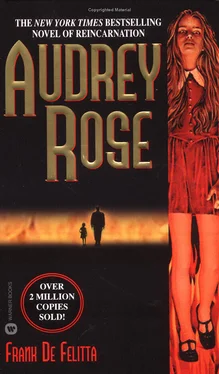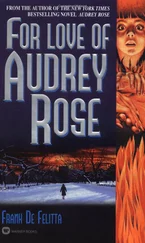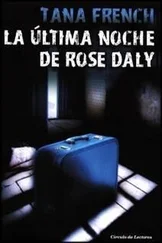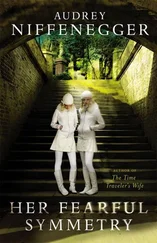“Hold on, please.”
The first hint of apathy showed when he told Janice of his decision to scrub the trip to Hawaii—that he’d sooner quit than go without them. Her response was to make none. Then, when he asked if her silence signified that she wished him to go, she still said nothing, simply continued squeezing oranges. Finally, and with some heat, he asked her what the hell it was she wanted him to do? To which she replied, “I think you should go.” The words were fine, but the spirit behind them left much to be desired. When he suggested they keep her and Ivy’s tickets in abeyance, to be used the moment Ivy’s temperature eased off, she said, “Okay.” Again, the content of the reply was acceptable, but not the force and feeling behind it. When he asked her if she was afraid to be left alone, afraid that Hoover might annoy her or that Ivy might have a relapse, she said in the same bland, listless tone, “Why should I be afraid? The majesty of the law will protect me against Hoover, and Dr. Kaplan’s suppositories will help me with Ivy.”
It was at this point that he felt the need for some fresh air. He suggested they both meet with Dr. Vassar later in the morning and make immediate arrangements to get Ivy back into therapy, to which Janice replied, “If you wish.” And that was it. The sum and substance of their morning dialogue—the totality of their exchange,
“Hello, this is Dr. Perez speaking; to whom do I speak?” The voice was thin; the accent South American.
“My name is William Templeton, Dr. Perez. Our daughter, Ivy, was a patient of Dr. Vassar’s some years ago.…”
“Dr. Vassar died two years ago.…”
“Yes, I know, Doctor, but there are some questions I would like to ask you since I understand you were at the clinic during the time my daughter was being treated.”
“Please ask.…”
“First, I’d like to know, do you still have Dr. Vassar’s records pertaining to my daughter’s case?”
Dr. Perez answered without hesitation, seemingly without thinking.
“Yes, we are a group practice at Park East, and all physicians’ case records are kept in a master file room. That would include Dr. Vassar’s case records as well.”
“Might I have access to those records?”
“Yes, you must sign a request for them, and we will be happy to turn them over to any other physician.”
“That’s another thing I want to discuss Dr. Perez. My daughter’s problem has recurred, and we have no other physician at this time. Would it be possible for you to take on this case?”
“Yes, it is possible. One moment, please.” There was a short pause during which Bill heard Perez breathing. “Mr. Templeton?”
“Yes, sir.”
“I have here a space in my book on December 14, at one o’clock.…”
“No, Dr. Perez, perhaps I haven’t made myself clear. My daughter is quite ill; she requires attention immediately.…”
“Then it would be impossible for me to take your daughter’s, case. Perhaps another doctor in the clinic might do it.”
“Fine, fine. My wife and I would like to come to the clinic this morning and make some kind of arrangement. Whom do we see?”
“Dr. Schanzer would be the person to see.”
Bill then called Janice and told her that Dr. Vassar had died, and she asked, “What from?”
“I don’t know,” Bill said peevishly. “I didn’t think to ask. What the hell’s the difference?”
“None, I suppose,” was her reply. The apathy persisted, deep-grained and enduring.
“I made an appointment to see the head of the clinic at ten thirty. Do you think Carole would be willing to stay with Ivy?”
“I’ll ask,” she said.
“We can have lunch afterward. I don’t have to check in at Kennedy till two fifteen.”
“Fine.”
The anteroom of the Park East Psychiatric Clinic had undergone a few minor alterations but essentially corroborated the image Bill had held in his memory for seven years. The wall of undraped windows exposed the same lovely knoll of park, although the trees then were as yet untouched by snow. The character of the paintings on the opposite wall had, however, made the transition from European Impressionism to American Modern, relying heavily on Nolan and Robert Indiana.
Five people were seated in the anteroom when Bill arrived at ten forty-five. Janice was not among them. He gave his name to the receptionist and was told to be seated. At eleven o’clock Janice had still not arrived. Bill was considering calling home when a young, pretty girl appeared at the far end of the room and addressed herself to the entire group.
“Mr. Templeton?”
Bill followed her down a corridor to a long, windowless room containing a large conference table with more than a dozen chairs ranged around it. A file folder had been placed on the table.
The girl smiled at him and said, “Dr. Schanzer’s schedule is quite tight this morning. He hopes to be able to pop in from time to time to talk with you.”
When the girl left the room, Bill took off his outer coat and placed it over the back of a chair. He loosened his tie somewhat, as the room was oppressively warm. His eyes gravitated to the legal-size manila folder with the word “Templeton” boldly printed in blank ink on the tab. It seemed thinnish to Bill, considering the time Dr. Vassar had spent with them: those multiple in-depth family and individual sessions, held either in her office or at the apartment, some lasting as long as five hours, depending on the need and circumstances.
Bill stared at the folder and wondered what Dr. Vassar had discovered about them: what secrets that sharp, intuitive brain had managed to ferret out; what conclusions she had come to concerning Ivy’s strange and terrible illness that she hadn’t shared with them. He had only to open the folder and look.
His fingers extended to the manila cover and stopped. The German woman’s wide, formal face and deep, penetrating eyes seemed to float above it.
Bill slowly drew back the cover.
The top sheet was a scrap of yellow, lined paper with strong handwritten notations. The writing had a foreign character about it; some of the letters such as the S’s and L’s were difficult to make out. She even wrote with an accent, Bill thought, as he slowly picked out the words.
Differentiation of disturbances of consciousness of epileptic origin from those of psychiatric origin is frequently very difficult—there is no prior history of epilepsy in this case—no temporal lobe disturbances indicated through physical examinations….
And below it, the name “Cullinan, 555-7751.”
Cullinan had been the doctor who had run electroen-cephalographic tests on Ivy just prior to her treatment at the clinic.
The next page was written on the back of a letter, a circular listing psychiatric pamphlets for sale. It seemed that Dr. Vassar made her notes on anything that came to hand.
“Hysterical phenomenology—???” was the question written across the top. And then a longer paragraph below:
Patient shows symptoms of somnambulistic state. Parents describe movements as being in response to the manifest content of the dream. The meaning may be an escape from the temptations of the bed; however, this would be unusual in the case of a child not yet three. Yet possible—since parents report child possesses ability to portray images and carry out complex actions during dream state.…
And below it: “Will arrange to be present during next seizure.”
Bill remembered the call he made to Dr. Vassar that night seven years before. It was two in the morning, and he wondered if he should disturb her, but she answered the phone on the first ring and said in a clear alert voice, “I will come.” She arrived soon after and spent the entire night with Ivy, alone, behind a closed door. There were many such nights that followed in the next year.
Читать дальше












